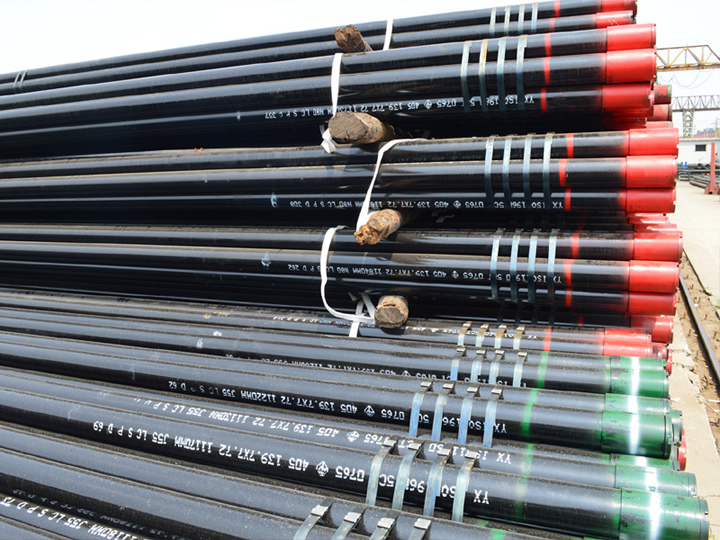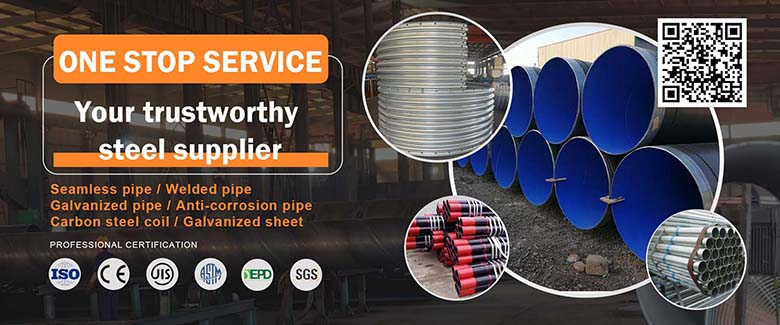Welcome to Yangtze Steel Group !
WhatsApp:+86 13863585577 E-mail : sales@yangtzepipe.com
Differences Between Oil Casing and API Tubing: A Professional Selection Guid
In the petroleum industry, the correct selection of tubular products directly impacts the safety and economic efficiency of drilling operations. Many customers often confuse the concepts of oil casing and API tubing. This article will provide a detailed analysis of their differences to help you make more precise procurement decisions.

Definition and Scope
Oil Casing
A large-diameter tubular product designed for specific applications, primarily used to reinforce the walls of oil and gas wells or wellbores. Serving as the “skeleton” of the wellbore, it supports the well wall to prevent collapse, ensuring safe drilling operations and normal production after well completion. Based on location and function, it can be categorized into types such as pilot casing, surface casing, technical casing, and production casing.
API Tubing
is the general term for pipeline products manufactured according to operational specifications established by the American Petroleum Institute. API standards encompass all pipeline types used in the petroleum industry, including but not limited to drill pipes, tubing, casing, and line pipes. Essentially, API standards serve as the universal “language” and quality assurance for the petroleum tubular goods industry.
Core Distinction Analysis
Differing Conceptual Levels
API pipe represents a standard system, while petroleum casing is a specific product manufactured under this system. This relationship is analogous to “food standards” versus “bread”—one denotes guidelines and specifications, the other a concrete product.
Differences in Application Scope
Oil casing is exclusively used for wellbore reinforcement as a disposable consumable, accounting for over 70% of all oil well tubular consumption. API tubular encompasses broader applications, potentially spanning all phases from drilling to production.
Technical Specification Requirements
Oil casing possesses specialized performance requirements:
Multiple steel grades: From J55, K55 to V150 and other strength levels
Superior crush resistance: Withstands formation pressure in complex geological conditions
Outstanding corrosion resistance: Maintains structural integrity in corrosive environments
Precision threading: Ensures leak-tight and reliable casing connections
Key Procurement Considerations
When selecting oil casing, prioritize the following:
Certification Qualifications
Ensure products carry complete API certification, the fundamental quality assurance.
Operational Suitability
Select appropriate steel grades and specifications based on well conditions:
Shallow wells: J55, K55 grades
Medium-to-deep wells: N80 or L80 grades recommended
Ultra-deep wells and special conditions: High-strength grades like P110 or Q125
Special Treatment Requirements
For corrosive environments, consider specialized materials or coating treatments. We offer L80 series corrosion-resistant casing and specialized coating services to meet diverse complex operational demands.
Technical Service Support
A reputable supplier should provide comprehensive technical support, including:
- String design and optimization recommendations
- Technical guidance for well operations
- Rapid response to on-site quality issues
Conclusion
Accurate understanding of the distinction between oil casing and API tubulars enables buyers to select suitable products more precisely. As a professional steel trading supplier, we not only provide high-quality oil casing compliant with API standards but also deliver customized product solutions tailored to specific client operating conditions. Our technical team stands ready to provide detailed product consultations and technical support.

Oil casing,API pipe,Pipeline products
Previous Page
Previous Page
RELATED NEWS
ShanSteel Group Successfully Develops European Standard Light-Thin Series H-Beams
Shandong Steel's Steel Section Plant has recently successfully developed a series of thin and light H-shaped steels that meet European standards, including HE180AA, IPE240A, IPE270A, and IPE300A, and successfully achieved a one-time trial production on its medium-sized production line.
2025
09-10
Serbian President Aleksandar Vučić met with Liu Jian, Chairman of HBIS Group.
Serbian President Aleksandar Vučić met with Liu Jian, Chairman of HBIS Group, in Beijing. Both sides highly commended the achievements of HBIS Group’s investment and cooperation in Serbia, and focused their discussions on establishing a China-Serbia joint laboratory and future development plans.
2025
09-09
With its outstanding strength and high-quality services, Yangtze Steel won the highest honor of "Annual Five-Star Merchant" from Alibaba International Station.
2025
09-03
The 2025 Cold-Rolled Sheet/Strip Technology Exchange Conference Concludes Successfully
The 2025 Cold Rolling Sheet Metal Technology Exchange Conference was successfully held, focusing on green intelligent manufacturing and lubrication technology innovation, and promoting the efficient and high-quality development of the industry.
2025
08-25
The Difference Between H-Beams and I-Beams
There are significant differences between H-shaped steel and I-shaped steel in cross-sectional shape, mechanical properties and applicable scope. H-shaped steel is more widely used in modern steel structure buildings due to its better economy and structural efficiency.
2025
08-21
Tata Steel's Chief Information Officer: Strive for a leading position in steel digitization
Tata Steel has become a digital leader in the steel industry and achieved significant benefits through comprehensive digital transformation, in-depth application of artificial intelligence, and multi-site collaboration.
2025
08-20


